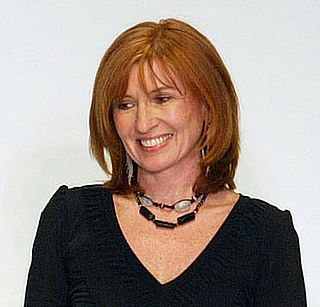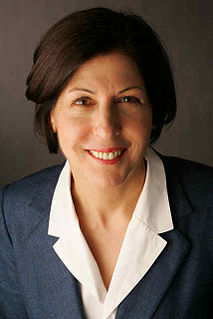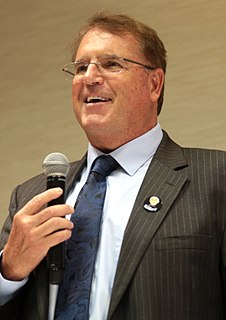A Quote by G. Edward Griffin
Secondly, as a result of this political favoritism, the FDA has become a primary factor in that formula whereby cartel-oriented companies in the food and drug industry are able to use the police powers of government to harass or destroy their free-market competitors.
Related Quotes
When the FDA forces an old drug off the market, patients have very little say in the matter. Patients have even less of a say when the FDA chooses not to approve a new drug. Instead, we are supposed to rely on the FDA's judgment and be grateful. But can the FDA really make a choice that is appropriate for everyone? Of course not.
Consider the clinicaltrials by which drugs are tested in human subjects.5 Before a new drug can enter the market, its manufacturer must sponsor clinicaltrials to show the Food and Drug Administration that the drug is safe and effective, usually as compared with a placebo or dummy pill. The results of all the trials (there may be many) are submitted to the FDA, and if one or two trials are positive—that is, they show effectiveness without serious risk—the drug is usually approved, even if all the other trials are negative.
The field of U.S. cancer care is organized around a medical monopoly that ensures a continuous flow of money to the pharmaceutical companies, medical technology firms, research institutes, and government agencies such as the Food and Drug Administration (FDA) and the National Cancer Institute (NCI) and quasi-public organizations such as the American Cancer Society (ACS).
Food safety oversight is largely, but not exclusively, divided between two agencies, the FDA and the USDA. The USDA mostly oversees meat and poultry; the FDA mostly handles everything else, including pet food and animal feed. Although this division of responsibility means that the FDA is responsible for 80% of the food supply, it only gets 20% of the federal budget for this purpose. In contrast, the USDA gets 80% of the budget for 20% of the foods. This uneven distribution is the result of a little history and a lot of politics.
Between food and fashion, there's always a direct correlations - designers have forever done prints with food on them. Vegetables, fruit, apples. There are some beautiful prints that have been made with fruit over time. I think food and restaurants have become more and more fashionable over time. That's become more of a fashion thing than fashion becoming a food thing. I don't think fashion has gotten so food oriented in the reverse aspect, but I think the whole food industry has gotten very design oriented. I think it's a nice way of putting things together.
To speak only of food inspections: the United States currently imports 80% of its seafood, 32% of its fruits and nuts, 13% of its vegetables, and 10% of its meats. In 2007, these foods arrived in 25,000 shipments a day from about 100 countries. The FDA was able to inspect about 1% of these shipments, down from 8% in 1992. In contrast, the USDA is able to inspect 16% of the foods under its purview. By one assessment, the FDA has become so short-staffed that it would take the agency 1,900 years to inspect every foreign plant that exports food to the United States.
In case you haven't noticed, a large wall is being built around the American people to ensure that they remain prisoner to the drug industry. It's easy to understand why drug makers want to force Americans to buy their products in the United States. Ours is the only industrialized country that doesn't negotiate the prices the drug companies may charge. As a result, a 90-day supply of Fosamax sells for $105 in Canada but $210 here.
America's universities are filled with economically ignorant haters of the free market, so university campuses have become major forums for union denunciations of such companies as Nike, Wal-mart, and others. Faculty and students claim to be concerned about 'social justice,' but they are simply being used as dupes by unions who are not at all concerned with justice of any sort. Rather, their main concern is increasing the coffers of union treasuries by driving non-union competitors from the market.
When a drug comes out [that's broadly prescribed] there are going to start to be a lot of people on it [in a million person cohort] and you might get therefore an early signal of something unexpected that hadn't come through in the clinical trials. And I'm sure [drug companies] would love it if, in fact, FDA, recognizing that, would say, OK, maybe you don't have to do your trial with 30,000 people because we're going to find out shortly after registration because we'll have a lot of people taking the drug and we'll be able to see what happened using PMI.


































